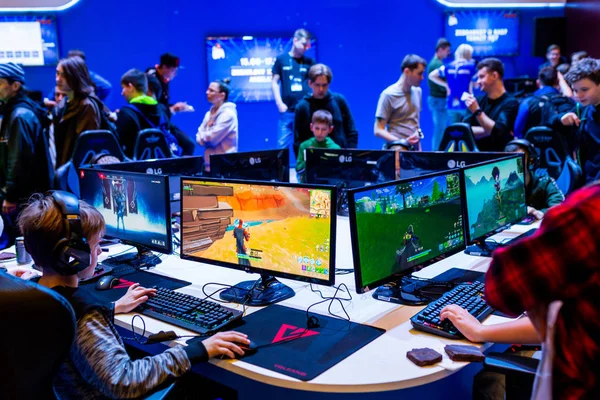In recent decades, gaming has evolved from a niche hobby to a global phenomenon, transcending boundaries of age, gender, and nationality. At the heart of this cultural revolution lies a vibrant and diverse community united by a shared passion for gaming. In this article, we delve into the multifaceted world of gaming culture and community, exploring its rich history, diverse expressions, and profound impact on society.
A Brief History of Gaming Culture
Gaming culture traces its roots back to the early days of arcade machines and home consoles, where enthusiasts gathered in dimly lit arcades or living rooms to immerse themselves in virtual worlds. As technology advanced, gaming evolved from simple pixelated graphics to immersive 3D environments, captivating audiences with ever-expanding possibilities and narratives. Alongside these technological advancements, gaming culture flourished, giving rise to conventions, tournaments, and online communities that celebrate the artistry and camaraderie of gaming.
Diversity and Inclusivity
One of the defining features of gaming culture is its inclusivity and diversity. Gamers come from all walks of life, representing a myriad of backgrounds, identities, and experiences. Despite stereotypes that persist in mainstream media, gaming is not limited to a single demographic; it is a universal language that transcends barriers and fosters connections. From casual mobile gamers to hardcore esports competitors, everyone has a place in the gaming community, contributing to its rich tapestry of perspectives and voices.
Esports: Where Gaming Meets Competition
At the forefront of gaming culture is the phenomenon of esports, where professional players compete in organized tournaments for fame, fortune, and glory. What began as friendly competitions among friends has blossomed into a multi-billion-dollar industry, with millions of fans tuning in to watch their favorite teams and players battle it out in games like League of Legends, Counter-Strike, and Overwatch. Esports tournaments fill stadiums, attract sponsorships from major corporations, and elevate gaming to the realm of mainstream entertainment, cementing its status as a legitimate sport.
Community and Connection
Beyond the competitive arena, gaming fosters a sense of community and connection unlike any other form of entertainment. Online multiplayer games serve as virtual meeting grounds where players from around the world can collaborate, compete, and form lasting friendships. Whether embarking on epic quests together or simply hanging out in virtual spaces, gaming provides a sense of belonging and camaraderie that transcends physical boundaries. Moreover, gaming communities extend beyond the digital realm, with conventions, meetups, and fan events offering opportunities for enthusiasts to connect face-to-face and celebrate their shared passion.
Social Impact and Empowerment
Gaming culture has also demonstrated its capacity for social impact and empowerment. Through initiatives like charity livestreams, fundraising events, and advocacy campaigns, gamers have rallied together to support important causes and make a positive difference in the world. From raising awareness about mental health issues to promoting diversity and inclusion, gaming communities have proven to be powerful agents of change, leveraging their collective influence for the greater good.
Celebrating Diversity, Unity, and Creativity
In conclusion, gaming culture and community represent a vibrant tapestry of diversity, unity, and creativity. From its humble beginnings in arcades and living rooms to the global phenomenon it is today, gaming has brought people together, fostered connections, and enriched lives in countless ways. As we continue to navigate the ever-changing landscape of gaming, let us celebrate the diversity of voices and experiences that make up this extraordinary community, united by a shared love for play, competition, and storytelling.




